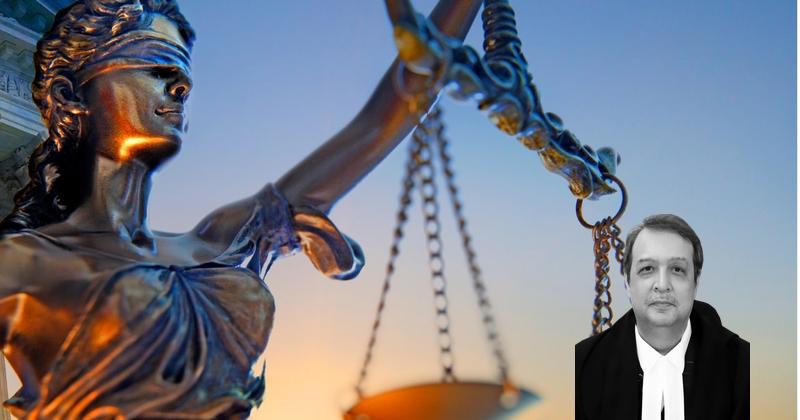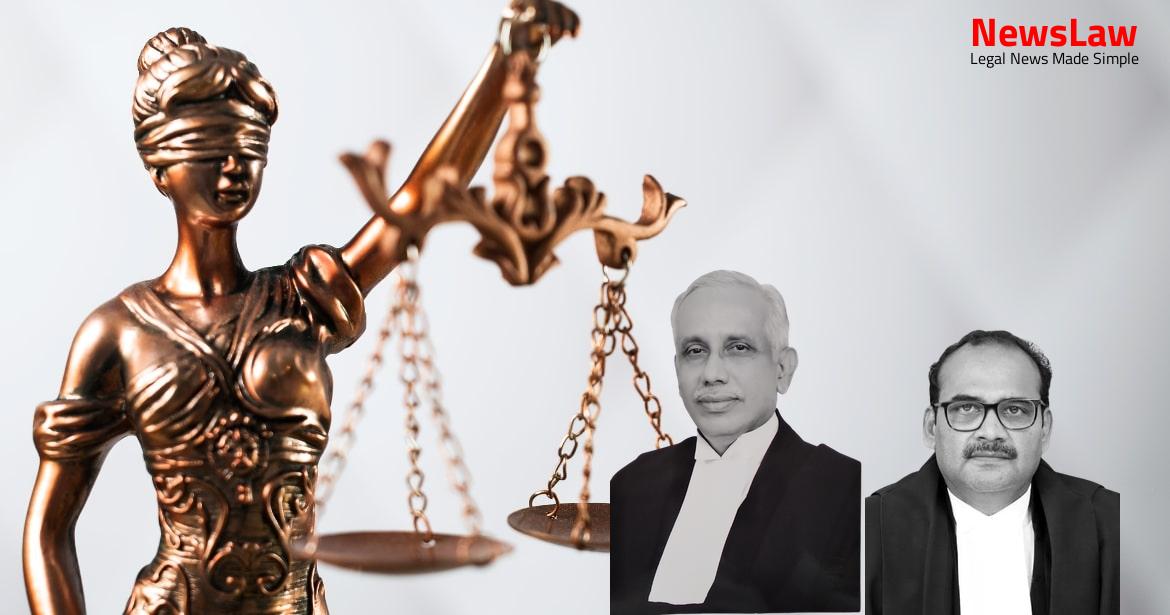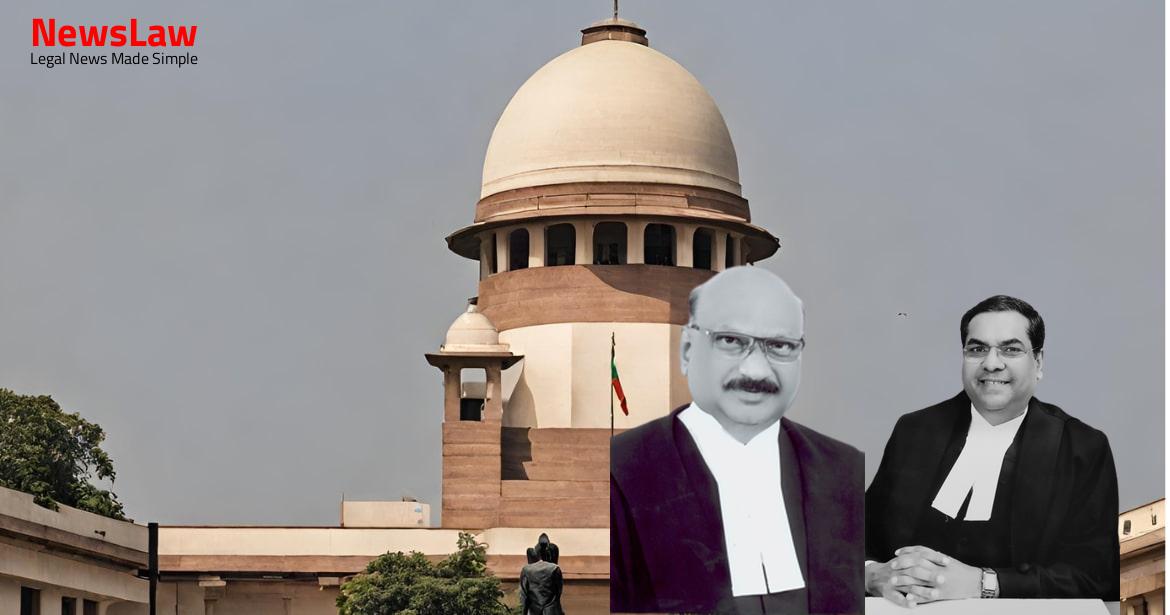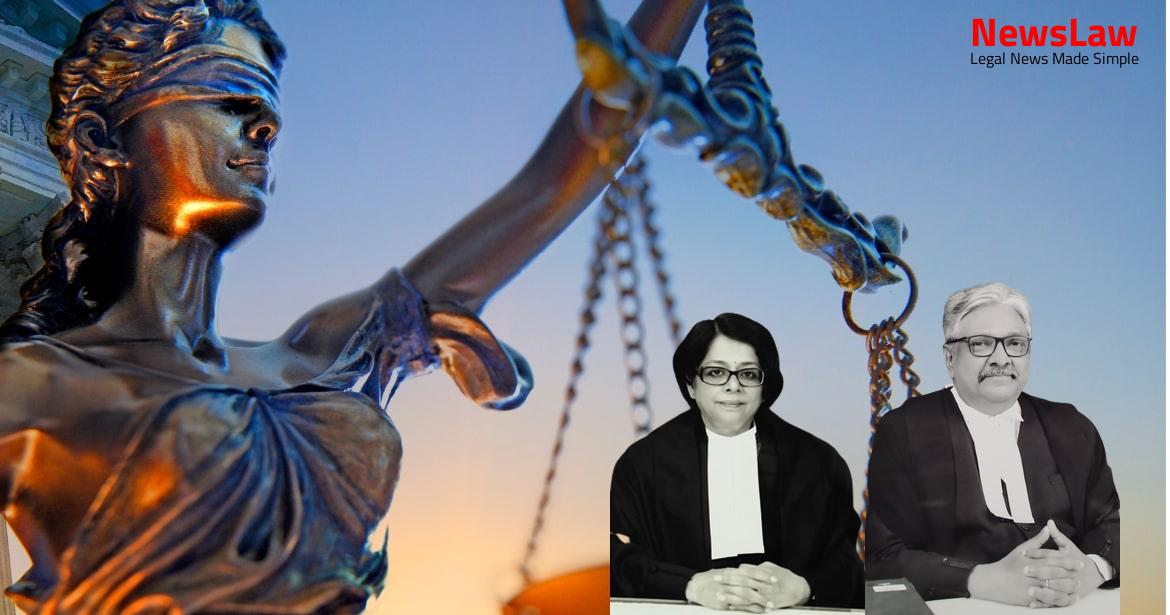2023 INSC 710 IN THE SUPREME COURT OF INDIA CRIMINAL APPELLATE JURISDICTION Criminal Appeal
No 2093 of 2023 (Arising out of SLP (Crl)
No 1715 of 2022) Dhanraj N Asawani Appellant Versus Amarjeetsingh Mohindersingh Basi and Others Respondents W I T H Special Leave Petition (Criminal)
No 2246 of 2022 1 1.
Also Read: https://newslaw.in/?p=652
On 2 May 2019, a letter was addressed by the Police Inspector of the EOW, Pimpri-Chinchwad to the Commissioner of Co-operation and Registrar of Co-operative Societies Maharashtra seeking a copy of the forensic audit report of the bank. On 16 June 2019, the Joint Registrar submitted a copy of the inspection report to the appellant. The High Court held that Section 81(5B) contains special provisions for the submission of a special report and the obtaining of the permission of the Registrar before the lodging of an FIR.
We have heard Mr Prashant Shrikant Kenjale, counsel for the appellant and Mr V Giri and Mr Deepak Nargolkar, senior counsel with Mr Shantanu 4 4 Phanse, counsel for the respondents.
Section 81(3)(c) empowers the Registrar or any person authorized to carry out or cause to be carried out a test audit of the accounts of the co-operative society. In terms of the first proviso to Section 81(5B), when the auditor has come to the conclusion in the audit report that any person is guilty of any offence relating to the accounts or any other offences, they are obligated to file a specific report to the Registrar.
The respondents have submitted that the institution of the FIR by the appellant, which is based on the audit report, is in contravention of Section 81(5B). The High Court was of the view that since the provisions of the 1960 Act are special in the sense that they govern co-operative societies in the state, the provisions of Section 81(5B) would preclude the registration of an FIR at the behest of a person, such as the appellant, who is a shareholder of the co-operative society. This Court held that the provisions of the CrPC would apply in full force because the Prevention of Corruption Act, 1947 did not provide for confiscation or prescribed any mode by which an order of confiscation could be made. Section 154 of the CrPC details the procedure for recording the first 8 9 information in relation to the commission of a cognizable offence. Government of U P, a Constitution Bench of this Court held that the main object of an FIR from the point of the view of the informant is to set the criminal law in motion and from the point of view of the investigating authorities is to obtain information about the alleged criminal activity to take suitable steps to trace and punish the guilty.
Section 81 of the 1960 Act casts a public duty on the auditor and the Registrar to audit co-operative societies. In Jamiruddin Ansari (supra) the issue before a two-Judge Bench of this Court was whether Section 23(2) of the Maharashtra Control of Organized Crime Act, 1999 excludes the application of Section 156(3) of the CrPC. Section 23(2) contains a specific bar against the taking of cognizance by a Special Judge without the previous sanction of a police officer not below the rank of Additional Director General of Police. Section 81(5B) of the Act casts a positive obligation on the auditor or the Registrar to file an FIR. It does not use any negative expression to prohibit persons other than the auditor or the Registrar from registering an FIR. The Court further held that the police report filed by the CBI can only be considered as a complaint petition made by an appropriate authority under Section 22 of the TOHO Act.
In Jeewan Kumar Raut (supra), this Court looked at the words of the statute as well as the overall scheme of investigation under the CrPC to infer that Section 22 of the TOHO Act bars the applicability of Section 167(2) of the CrPC by necessary implication. Section 81(5B) cannot be interpreted to mean that any other person who comes to know about the financial irregularity on the basis of the audit report is debarred from reporting the irregularity to the police. The order of the Minister has been called into question in independent proceedings before the High Court. In that case, this Court held that the High Court can exercise its powers under Article 226 of the Constitution or Section 482 of the CrPC to quash an FIR where there is an express legal bar engrafted in any provisions of a special law with respect to the institution and continuance of the proceedings. The Special Leave Petition is disposed of in terms of the order passed by this Court in Dhanraj N Asawani vs Amarjeet Singh Mohindersingh Basi and Others [Criminal Appeal No 2093 of 2023].
Case Title: DHANRAJ N. ASAWANI Vs. AMARJEETSINGH MOHINDERSINGH BASI (2023 INSC 710)
Case Number: Crl.A. No.-002093-002093 / 2023



